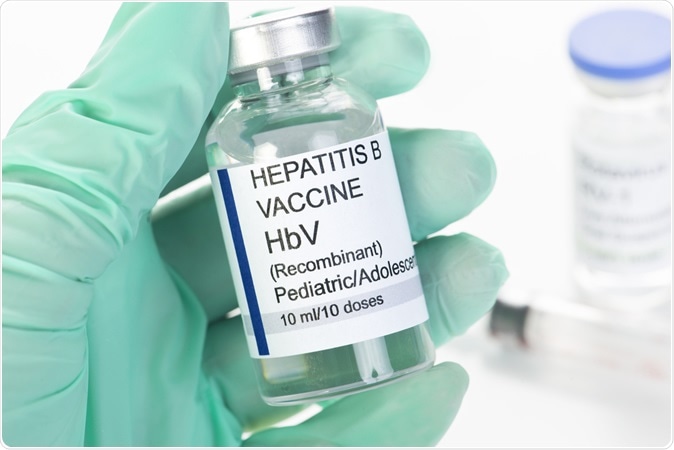Why Vaccinate Against Hepatitis B
Written By Assandoh-Mensah Prince in 2018
Have you ever heard of Hepatitis B vaccination? Or have you been vaccinated against Hepatitis B? What do you know about Hepatitis B vaccine? Today I am going to take you through what Hepatitis B vaccination is and the role it plays in Hepatitis B prevention.
Hepatitis B is a potentially life-threatening infection that attacks the liver. It’s caused by the Hepatitis B virus. It’s a common infection that contributes hugely to global deaths. In 2015 alone, it resulted in 887 000 deaths across the globe.
It is estimated that, 257 million people are living with hepatitis B virus infection. In Ghana, the prevalence of Hepatitis B infection is very high. Among the general population, at least 1 out of every 10 have the Hepatitis B infection, whereas the virus was detected in the blood of over 13% of voluntary blood donors.
The disease can be easily transmitted from one person to other. Though the disease is transmitted primarily through blood, the virus can also be found in saliva, semen, and vaginal secretions and be transmitted through mucous membranes and breaks in the skin.
Mother to child transmission is also possible – this usually occurs during the time of birth and close contact afterward.
The hepatitis B virus can survive outside the body for at least 7 days. During this time, the virus can still cause infection if it enters the body of a person who is not protected by the vaccine. The general population is at risk of the disease though health workers, infants, close contacts and sexual partners of HBV patients, homosexuals and many others are considered to be at a higher risk.
Treatment is available for those who progress into the chronic stage. However, in most people, the treatments do not cure the infection, but only suppresses the replication of the virus. Therefore, most people who start hepatitis B treatment must continue it for life.
So why wait till this deadly disease attack you when you can actually prevent it. Though safer sex practices, including minimizing the number of partners and using barrier protective measures (condoms) protect against transmission of the disease, the vaccine is the mainstay of hepatitis B prevention.
Currently in Ghana, every child is freely vaccinated against the disease on 6, 10 and 14weeks from birth as part of the Expanded Program on Immunization usually given at Child Welfare Clinic (popularly known as Weighing). Protection lasts for at least 20 years and is probably lifelong. Thus, the World Health Organisation does not recommend booster vaccination for persons who have completed the 3 dose vaccination schedule.
Adults who have not been vaccinated against the disease can still go for the vaccination. The hepatitis B vaccine is administered intramuscularly in three doses. The second dose is given 1month after the first dose whereas the third dose is given 6months after the first dose. The third dose is very important in producing prolonged immunity.
The vaccine produces active immunity to Hepatitis B virus only. Protection against other types of Hepatitis such as Hepatitis ‘A’ may require their respective vaccines. It does not provide protection to those already exposed to Hepatitis B virus. Thus, one may be required to test for Hepatitis B before commencement of the vaccine. Soreness and redness at the injection site are the common side effects most reported though they are infrequent.
Hepatitis B vaccination is an effective way of preventing Hepatitis B infection. Get tested and vaccinated today.
REFERENCE
Hinkle, J. L. (2014). Brunner & Suddarth’s textbook of medical-surgical nursing (Edition 13.). Philadelphia: Wolters Kluwer Health/Lippincott Williams & Wilkins.
Lewis, S.L., Dirksen, S.R., Heitkemper, M.M., & Bucher, L. (2014). Medical-Surgical Nursing: Assessment and Management of Clinical Problems (9th ed.). St. Louis: Elsevier
Osei, E., Lokpo, S. Y., & Agboli, E. (2017). Sero-prevalence of hepatitis B infection among blood donors in a secondary care hospital, Ghana (2014): a retrospective analysis. BMC Research Notes, 10, 391. http://doi.org/10.1186/s13104-017-2733-3
Sommers, M. S. (2011). Diseases and disorders: A nursing therapeutics manual. Philadelphia: F.A. Davis Co.
Tanko Rufai et al. (2014). The prevalence of hepatitis B virus E antigen among Ghanaian blood donors. The Pan African Medical Journal. 2014;17:53. doi:10.11604/pamj.2014.17.53.3390
Williams, L.S. & Hopper, P.D. (2011). Understanding medical surgical nursing. Philadelphia, Pa. :F.A. Davis
World Health Organisation. (July 2017). Hepatitis B. Fact Sheet. Retrieved 8th March, 2018 from http://www.who.int/mediacentre/factsheets/fs204/en/
World Health Organisation. Expanded program on immunization. Retrieved 9th March, 2018 from http://www.who.int/countries/gha/areas/immunisation/en/




